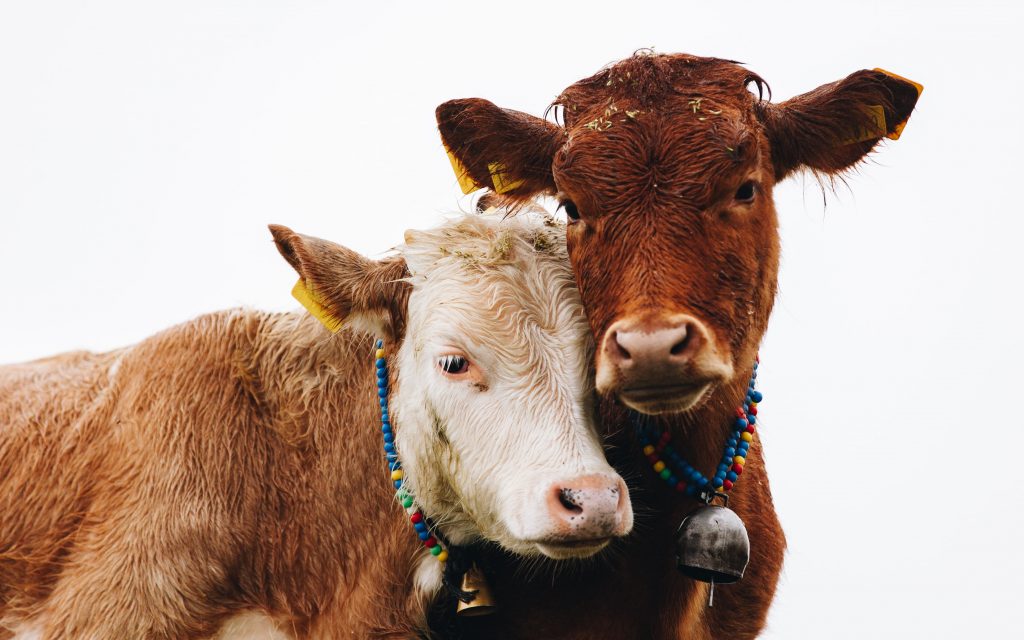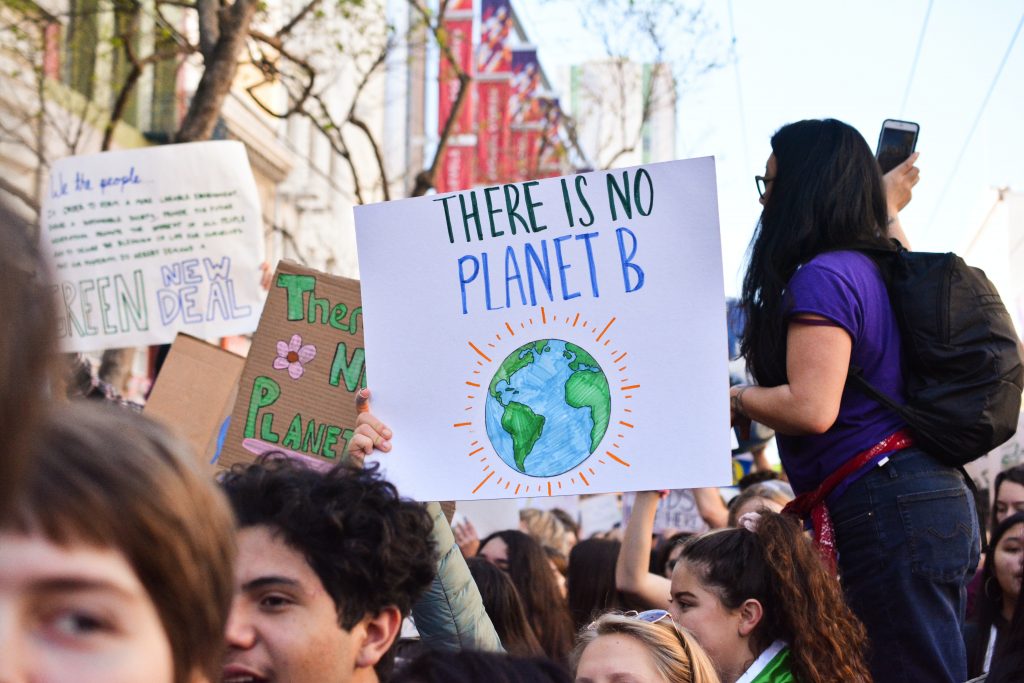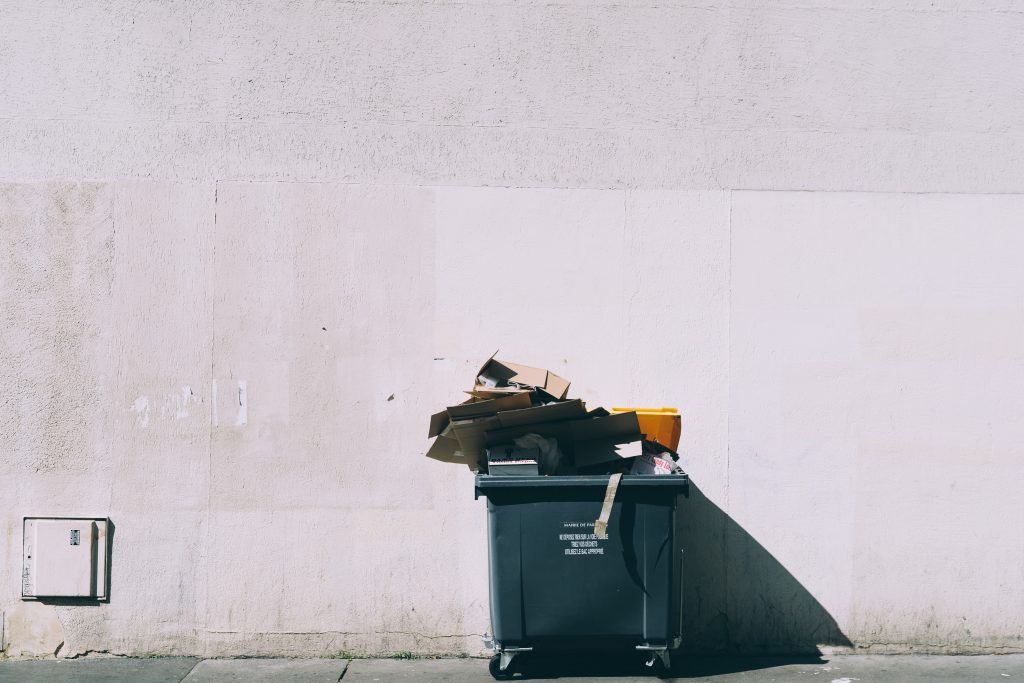Although climate change has been a concern for several decades, it is only recently that the majority of the UK population are beginning to take it seriously. To have the best chance of avoiding a climate catastrophe, we need to dramatically decrease the amount of greenhouse gas emissions we produce. In April 2021, the UK government announced their commitment to reduce carbon emissions by 78% by 2035, compared to the level of emissions in 1990. But will that be enough?
Each person’s carbon footprint depends on the choices they make – both in their day-to-day life, and in a broader sense. Below are a few simple ways to reduce your own carbon footprint and help our planet.
“We are the first generation to feel the sting of climate change, and we are the last generation that can do something about it.”
– Jay Inslee

Shop second-hand
The work that goes into producing a brand new item is often unseen, and therefore, is not considered when we buy said product. However, the process is far from eco-friendly. Due to low labour costs, products are often manufactured on the other side of the world and shipped or flown to the UK, producing tons of carbon emissions.
What’s more, complex items with a multitude of components (e.g. smartphones, computers, motor vehicles) often undergo the process more than once. The materials may be shipped to a location where components are made, then transported to another location where an item is assembled, followed by a trip to the distributing country. These places can be thousands of miles apart!
By shopping second-hand, you are purchasing items that have already been produced, and are usually local to you. Additionally, you are saving those items from ending up in a landfill. Whether you frequent charity shops, browse eBay or Facebook Marketplace, or even go to a car boot sale… You can find anything from small items like clothing, and books, to furniture and kitchen appliances!

Eat plant-based
Some people may consider this controversial, but there is no denying that a plant-based diet is better for the environment. Animal husbandry is one of the biggest sources of carbon emissions. Livestock animals consume great amounts of grain and water throughout their life. When you add up the water used to grow the grain, as well as water required to produce hay, silage and pasture for the animals, it is estimated that it takes a staggering 15,500 litres (3410 gallons) to produce 1 kilogram of beef. Not to mention, farm animals like cattle, sheep and goats produce hundreds of millions of tons of CO2 in methane.
It may not happen overnight, but even reducing your consumption of meat and dairy makes a huge difference to cutting your carbon emissions.

Change the way you commute
An average passenger car emits 0.78 lbs of CO2 per mile. And if you commute in busy traffic times, those numbers are likely to be even higher. The good news is, there are alternatives! Public transport is a great option, especially if you are in a large city with accessible transport links. If you live in a more remote location, consider driving or cycling to the nearest train station as opposed to driving all the way to your destination. If you are only travelling a short distance, see if you can walk, cycle or even ride a scooter!

Invest into Ethical Corporations
Just as every person has their own carbon footprint, organisations and companies have one, too! By associating with these companies we sometimes take on their carbon emissions by proxy. When it comes to corporations, their carbon footprint isn’t solely limited to their practices (such as manufacturing, shipping or waste management), it can also stem from investment.
For example, a company may invest their capital in fossil fuels or own a commercial airline. By giving your money to such companies, you are indirectly contributing to the damage they cause.
It might not be possible to check the practices of every retailer, restaurant or bank yourself, but thankfully a lot of research has already been done. Next time you choose where to invest your money, why not consult a reputable source such as Ethical Consumer.

Reduce Waste
In 2016, the UK generated 221 million tons of rubbish, with England responsible for 85% of the total waste. And although the situation is slowly improving, over 7 million tonnes of biodegradable waste still get sent to landfill every year. Furthermore, only about 45% of the waste is recycled. Here’s what you can do to reduce your household waste.
Firstly, separate your rubbish. If you don’t have a recycling bin, you should be able to find information about a local recycling point. It’s very important to follow the guidelines to ensure the cans, bottles and plastic containers are suitable for recycling.
Food waste, garden waste and some types of cardboard can be composted. If you don’t have a way to compost things yourself. Try contacting a local allotment, they may be more than willing to take your waste.
Of course, a great way to reduce your waste is to create less to begin with. When shopping, opt for minimal packaging, and remember to bring your own bags!
Reducing your carbon footprint is a small lifestyle sacrifice, but if you are able to keep it up for the rest of your life it can have a significant effect.
Useful resources:
Carbon Footprint Fact Sheet – Center for Sustainable Systems, University of Michigan
UK Statistics on Waste (2020 update) – Department for Environment, Food and Rural Affairs
UK’s Halfway to Emissions Target – Carbon Brief

